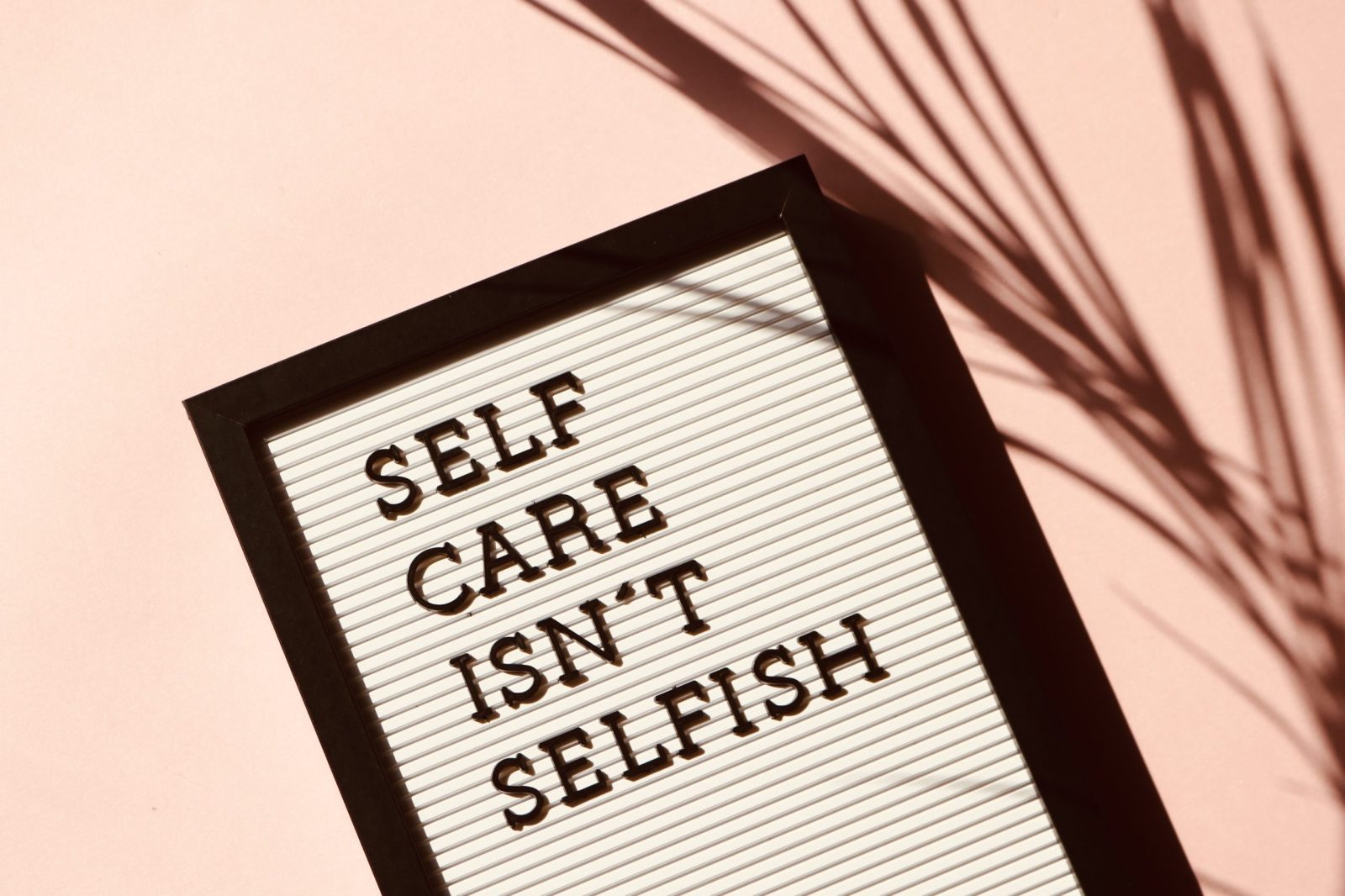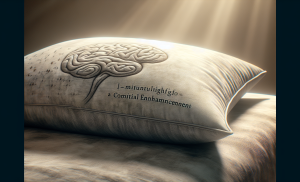How Can Journaling Or Expressive Writing Aid In Stress Management?
In this article, you will discover the remarkable ways in which journaling or expressive writing can help you manage stress. With the simple act of putting pen to paper, you can unlock a powerful tool that allows you to process your thoughts and emotions, gain clarity, and find solace in the midst of life’s challenges. By exploring the connection between journaling and stress reduction, you might just uncover a valuable outlet for self-expression and personal growth. So grab your favorite notebook and let’s delve into the world of journaling as a stress management technique.
Understanding Stress
Stress is a natural response that we experience when faced with challenging or demanding situations. It is a feeling of emotional or physical tension that often manifests when we are overwhelmed or under pressure. Stress can stem from various sources, including work, relationships, or internal struggles. It is important to understand stress and its impact on our bodies in order to effectively manage and reduce it.
Definition of Stress
Stress can be defined as the body’s way of responding to any perceived threat or demand. It triggers a cascade of physiological changes, such as increased heart rate, elevated blood pressure, and the release of stress hormones like cortisol and adrenaline. These changes prepare our bodies to either fight or flee from the perceived threat. While stress can motivate us to take action and help us perform under pressure, chronic or excessive stress can have detrimental effects on our health and well-being.

Types of Stress
There are two main types of stress: acute stress and chronic stress. Acute stress is commonly known as the “fight-or-flight” response and is activated in response to immediate threats or challenges. It is short-term and the body typically returns to its normal state once the stressor is removed. On the other hand, chronic stress is long-term and persists over an extended period of time. It can result from ongoing pressures or unresolved issues and can have more detrimental effects on our physical and mental health.
Effects of Stress on the Body
Experiencing stress over an extended period of time can have significant impacts on our physical and mental well-being. It can lead to a wide range of symptoms and health problems, including headaches, muscle tension, sleep disturbances, digestive issues, anxiety, depression, and weakened immune function. Chronic stress can also contribute to the development or worsening of conditions such as cardiovascular disease, diabetes, and obesity. It is crucial to find effective strategies to manage and reduce stress in order to maintain our overall health and well-being.

Benefits of Journaling and Expressive Writing
Journaling and expressive writing can be powerful tools in managing stress and promoting emotional well-being. These practices provide an outlet for self-expression and reflection, allowing us to process our thoughts and emotions in a safe and non-judgmental space. They offer numerous benefits that can aid in stress management and enhance our overall well-being.
Emotional Release
One of the key benefits of journaling and expressive writing is the opportunity for emotional release. By putting our thoughts and feelings onto paper, we can gain a sense of relief and release pent-up emotions. Writing can be a cathartic experience, allowing us to express ourselves freely and without inhibition. This emotional release can help reduce stress and promote a sense of calm and inner peace.
Cognitive Processing
Engaging in journaling or expressive writing can help us make sense of our experiences and organize our thoughts. It allows us to reflect on and analyze our emotions, experiences, and challenges in a structured and coherent manner. This cognitive processing can lead to greater clarity and understanding, helping us find solutions to problems and navigate stressful situations more effectively.
Increased Self-Awareness
Regular journaling or expressive writing can also increase self-awareness. By regularly exploring our thoughts, feelings, and reactions, we can gain insight into our patterns, triggers, and stressors. This heightened self-awareness enables us to better understand ourselves, our needs, and our boundaries, empowering us to make positive changes and reduce stress in our lives.
Journaling Techniques
There are various journaling techniques that can be utilized to enhance the effectiveness of the practice. These techniques provide structure and guidance, allowing individuals to explore their thoughts and emotions in a focused and intentional way.
Stream of Consciousness Writing
Stream of consciousness writing involves putting pen to paper and allowing thoughts to flow freely without any censorship or judgment. It is a continuous and spontaneous form of writing, where the focus is on capturing every thought or feeling that comes to mind, regardless of coherence or organization. This technique can be particularly useful for processing emotions and accessing subconscious thoughts.
Prompt-Based Journaling
Prompts are pre-determined questions or statements that serve as a starting point for journaling. They can provide structure and direction, making it easier to delve into specific topics or areas of exploration. Prompts can range from simple questions like “How am I feeling today?” to more complex inquiries such as “What are my fears and how do they impact my life?” Using prompts can help focus and guide the journaling process, allowing for deeper introspection and self-reflection.
Gratitude Journaling
Gratitude journaling involves focusing on and documenting things we are grateful for. It is a practice of intentionally recognizing and appreciating the positive aspects of our lives. By regularly identifying and expressing gratitude, we cultivate a positive mindset and shift our focus away from stressors, leading to increased overall well-being. Writing down three things you are grateful for each day can be a simple yet impactful gratitude journaling practice.

Expressive Writing Techniques
In addition to journaling, expressive writing techniques can also be employed to facilitate emotional expression and release. These techniques involve using writing as a tool to explore and process challenging emotions and experiences.
Unsent Letter Writing
Unsent letter writing involves writing a letter to a specific person but without the intention of ever sending it. It provides a safe outlet to express thoughts, feelings, and grievances that might otherwise go unexpressed. Writing an unsent letter allows us to freely express ourselves without the potential consequences or constraints of real-life interactions. This technique can be particularly helpful when dealing with unresolved conflicts or when seeking closure.
Dialoguing with Your Emotions
Dialoguing with your emotions involves engaging in a written conversation between yourself and the emotions you are experiencing. It allows you to personify your emotions and engage with them as if they were separate beings. This technique provides an opportunity to gain insights and perspectives from your emotions, enabling you to better understand and manage them. It can be a powerful tool for uncovering underlying beliefs, motivations, and needs.
Artistic and Creative Writing
Artistic and creative writing techniques involve using different forms of expression, such as poetry, storytelling, or song lyrics, to explore emotions and experiences. These techniques allow for a more abstract and creative approach to writing, encouraging self-expression through metaphor, imagery, and symbolism. Engaging in artistic or creative writing can foster a deeper connection to emotions, providing a unique and individualized form of stress management.
Establishing a Regular Practice
To fully reap the benefits of journaling or expressive writing, it is important to establish a regular practice. Consistency and commitment can enhance the effectiveness of these techniques and help us build a sustainable stress management routine.
Setting Aside Dedicated Time
Create a schedule and set aside dedicated time for journaling or expressive writing. Find a time that works best for you, whether it’s in the morning, during lunch breaks, or in the evening before bed. By prioritizing and blocking off specific time for these practices, you are more likely to incorporate them into your daily or weekly routine.
Choosing a Private and Comfortable Space
Select a quiet and comfortable space where you can focus and feel at ease. The environment plays a crucial role in creating a conducive atmosphere for reflection and self-expression. Choose a space that allows you to feel safe, free from distractions, and encourages open and honest expression.
Making Journaling or Writing a Habit
Consistency is key when it comes to journaling or expressive writing. Treat it as a habit and commit to showing up regularly, even when you may not feel inspired or motivated. Making it a non-negotiable part of your routine helps build the practice into your lifestyle, allowing it to become a natural and integrated part of your stress management strategy.
Tips for Effective Journaling and Expressive Writing
To make the most of your journaling or expressive writing practice, consider implementing the following tips:
Write Without Judgment or Censorship
Allow your thoughts and emotions to flow freely without self-censorship or judgment. Remember that this is a personal and private practice, and there are no right or wrong answers. Embrace vulnerability and authenticity in your writing, knowing that it is a safe space for self-expression.
Use Descriptive Language and Explore Emotions
Utilize descriptive language to vividly capture your experiences and emotions. Delve deeply into your feelings, exploring their nuances and complexities. The more detailed and introspective your writing, the more insight and clarity you may gain.
Experiment with Different Writing Tools
Explore different writing tools to find what works best for you. Whether it’s pen and paper, a digital journaling app, or even voice recordings, experiment with different mediums to discover which one allows you to express yourself most effectively. Each individual has unique preferences, so find the method that resonates with you the most.
Combining Journaling and Mindfulness
Mindfulness, the practice of being fully present and aware in the present moment, can complement and enhance the journaling or expressive writing process. By bringing mindfulness into our writing practice, we can deepen self-reflection and cultivate a greater sense of calm and clarity.
Bringing Mindfulness to the Writing Process
Before you start writing, take a few moments to center yourself through simple mindfulness techniques. Close your eyes, take deep breaths, and tune in to your body and emotions. This grounding practice helps you enter a more present and receptive state, allowing for a more authentic and mindful writing experience.
Using Journaling to Enhance Self-Reflection During Mindfulness Practice
Journaling can also be used as a tool to enhance self-reflection during mindfulness practice. After engaging in a mindfulness exercise, take a few moments to write down your observations and experiences. This process of externalizing your mindfulness practice can deepen your understanding and help integrate the benefits into your daily life.
Creating a Gratitude Journal as a Mindfulness Exercise
Consider creating a gratitude journal as a mindfulness exercise. Each day, write down three things you are grateful for, and take the time to fully immerse yourself in the feeling of gratitude. This practice not only enhances mindfulness but also promotes a positive mindset and reduces stress by shifting your focus to the blessings in your life.
Journaling and Expressive Writing for Specific Stressors
Journaling and expressive writing can be beneficial for managing stress related to specific areas of life. Here are some examples:
Work-Related Stress
If you are experiencing work-related stress, journaling can provide a space to analyze and process your thoughts and emotions regarding work challenges, conflicts, or dissatisfaction. It can help you gain insights into the underlying causes of stress and explore potential solutions or coping mechanisms.
Relationship Issues
Journaling can be a valuable tool for navigating relationship issues. By expressing your thoughts and feelings in writing, you can gain clarity and objectivity. Journaling can also help you identify patterns in your relationships and explore ways to improve communication, set boundaries, or make decisions that support your well-being.
Trauma and Emotional Healing
For individuals who have experienced trauma, expressive writing can be particularly beneficial. It can provide an outlet for processing and releasing traumatic experiences and associated emotions. By engaging in expressive writing, individuals can begin to heal emotional wounds and find a sense of empowerment and resilience.
Journaling and Writing Resources
There are various resources available to enhance your journaling and expressive writing practice. Here are some recommendations:
Books
- “The Artist’s Way” by Julia Cameron explores the connection between creativity, spirituality, and personal growth through various writing exercises.
- “The Write Prescription: Telling Your Story to Live With and Beyond Illness” by Dr. John Evans and James W. Pennebaker offers guidance on using expressive writing to cope with illness and promote healing.
- “Writing Down the Bones” by Natalie Goldberg provides practical advice and inspiration for developing a regular writing practice.
Websites and Apps
- The website 750words.com offers a private and secure space for online journaling, tracking your progress, and gaining insights into your writing habits.
- The app Day One is a popular digital journaling app that allows you to capture your thoughts, memories, and experiences in a secure and organized manner.
Writing Communities and Workshops
- Seek out local writing communities or workshops that focus on journaling or expressive writing. Connecting with like-minded individuals can provide support, inspiration, and the opportunity to share experiences and insights.
Seeking Professional Help
While journaling and expressive writing can be valuable tools for stress management, there may be times when seeking professional help is necessary. Here are some considerations:
When to Consider Therapy
If your stress levels are severely impacting your daily functioning, relationships, or overall well-being, it may be beneficial to seek the guidance of a mental health professional. Additionally, if your stress stems from trauma or previous emotional wounds, therapy can provide targeted support and healing.
How Therapy Can Complement Journaling or Writing
Therapy and journaling or expressive writing can work together to enhance your well-being. Therapy can provide a supportive space to explore deeper emotional challenges, while journaling or expressive writing can be used as a supplemental practice to process and reflect on the insights gained in therapy.
Finding a Mental Health Professional
When searching for a mental health professional, consider factors such as their expertise, approach, and compatibility with your needs. Seek recommendations from trusted sources, conduct online research, and don’t hesitate to set up initial consultations to find the right fit for you.
By incorporating journaling or expressive writing into your stress management toolkit, you can tap into the power of self-expression, cognitive processing, and increased self-awareness. Cultivating a regular practice and utilizing various techniques can help you better understand and manage stress in different areas of life. Remember, you are not alone in your journey, and there are resources and professionals available to provide support along the way. Start your writing journey today and discover the transformative power of self-reflection and expression.

















